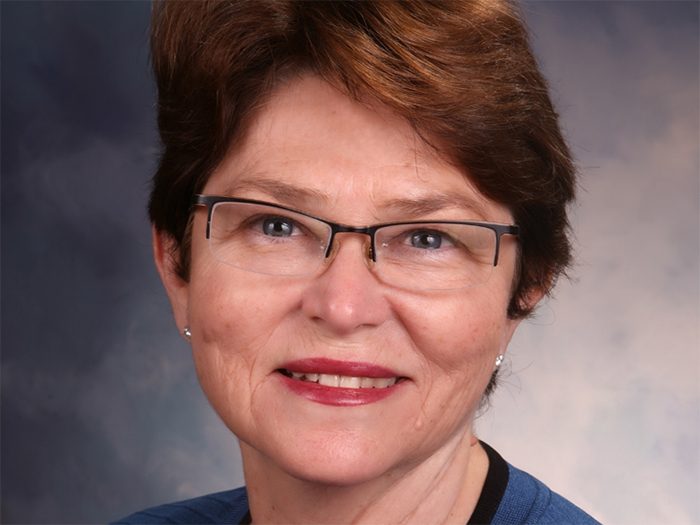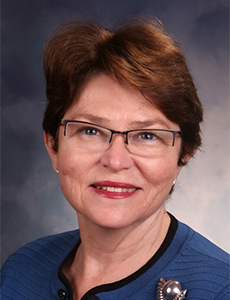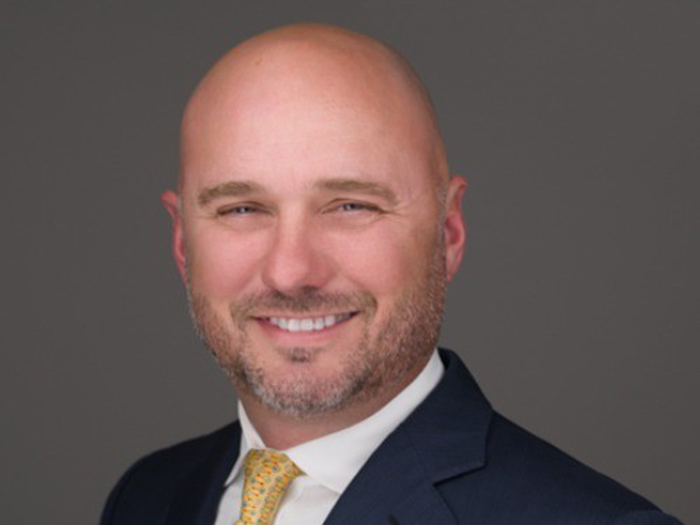DMEC’s Marcia Carruthers on Three Decades of Building a Profession

It’s the hope of every parent to launch their offspring into the world, having given them a strong foundation to build on. If we’ve done it well, we get to sit back and watch them soar.
The feeling is much the same for Marcia Carruthers as she steps back from the chairmanship of the Disability Management Employer Coalition, satisfied that what she’s spent three decades building is strong and thriving, and ready to take on the challenges ahead.
At the opening of the 2019 DMEC conference in Washington, D.C., Carruthers reflected on her 30-year journey as she announced her retirement as Board chair.
Carruthers, together with co-founder Sharon Kaleta, now retired, first conceived of what would become DMEC in an era when compliance was still a relatively simple matter, but growing in importance.
“The idea was we wanted to share disability management concepts that we were just developing them,” said Carruthers. “We wanted to get together with other employers to share ideas and best practices so we could improve our programs. And it usually involved getting together over lunch.
“And that’s pretty much what we’re still doing. It’s much more sophisticated, we have more technology and certainly there’s a lot more people involved,” she said. “But that’s still what we’re doing.”
As DMEC has evolved, a disability and absence management industry has grown up around it, furthering Carruthers’ and Kaleta’s dream of employers collaborating and sharing best practices. The DMEC community now numbers more than 12,000 professionals representing employers, service providers and insurers.
In addition to hosting its annual national conference and an annual FMLA/ADA Employer Compliance Conference, regional chapters in more than a dozen major metro areas deliver networking and education throughout the year to local integrated absence management professionals.
DMEC also offers two professional designations, webinars, a member magazine, legislative updates and more.
But the core value for DMEC members remains the networking opportunities the organization provides to enable the ongoing sharing of best practices – a reflection of how well DMEC’s mission remains relevant 30 years after it was articulated.
“Our mission really has remained the same,” said Carruthers, “and that’s to provide practical strategies, resources, and information to help employers … get people back to work to increase productivity and impact absence.
“That was the simple mission back then, and I think part of our success is sticking to our mission.
“We’ve done it through a variety of means, in terms of our educational programs, networking – especially at conferences, and books, webinars, white papers, think tanks [and more].”
Mental Health to the Forefont
As DMEC moves into its next phase, Carruthers notes that there are a variety of key issues that the DMEC community will be keeping in focus, including the surprising lag into the number of employers utilizing return-to-work best practices.
“The elusiveness of return to work – that was the core of what we were talking about 30 years ago. And it still is not universal,” she said. “It just baffles me that something this basic, whether it’s occupation or non-occupational, is not more ingrained” despite well publicized evidence of the cost savings and productivity gains produced by RTW programs.
“The World Health Organization just came out with some new statistics saying that 12 billion workdays will be lost to depression and anxiety disorders by the year 2030 which is really only 10 years away. That’s a battle that we can feel we have to keep working on. ” — Marcia Carruthers, co-founder and departing board chairwoman, DMEC
The impact of psychosocial issues and the ongoing stigma surrounding mental health are also core issues for DMEC going forward, she said, a fact clearly evident in the programming of this year’s conference. Employers in attendance told Risk & Insurance® that DMEC’s behavioral health offerings this year have given them the tools to start more meaningful dialogues about mental health claims within their organizations.
“This is a personal passion with me,” said Carruthers, noting that DMEC first began providing behavioral health risk information for its members in the mid-90s.
“That stigma is still out there,” she said, despite the contributions of “people in high places that have talked about their experience with mental health challenges and how it affected their lives”
“That’s a battle that we can feel we have to keep working on. The World Health Organization just came out with some new statistics saying that 12 billion workdays will be lost to depression and anxiety disorders by the year 2030 which is really only 10 years away.”
For many employers, she said, mental health has been an issue that sits on the “when we get around to it” shelf, while seemingly more pressing matters demand resources and attention.
“DMEC will continue to make this something that we bring to the attention of our members,” she said. “We’re going to keep it in the forefront going forward.”
Well Positioned for the Future
Carruthers said that shepherding the organization to the where it stands today has been a labor of love, and she’s looking forward to watching its further evolution and growth.
But she is more than content “to be passing this over to some very capable and well positioned people in terms of the next phase of DMEC,” including Terri Rhodes, who has served as CEO since Carruthers stepped down from the role in 2013.
Carruthers is passing the chairmanship role to Kevin Curry, chief revenue officer for ReedGroup.
“He’s been a member of our board for a number of years – I feel very confident in his vision and his strategic thinking,” she said.
“The people that I’ve worked with over the years and how the vast majority of them are really in this business because they want to make a difference and they care about people.” &











